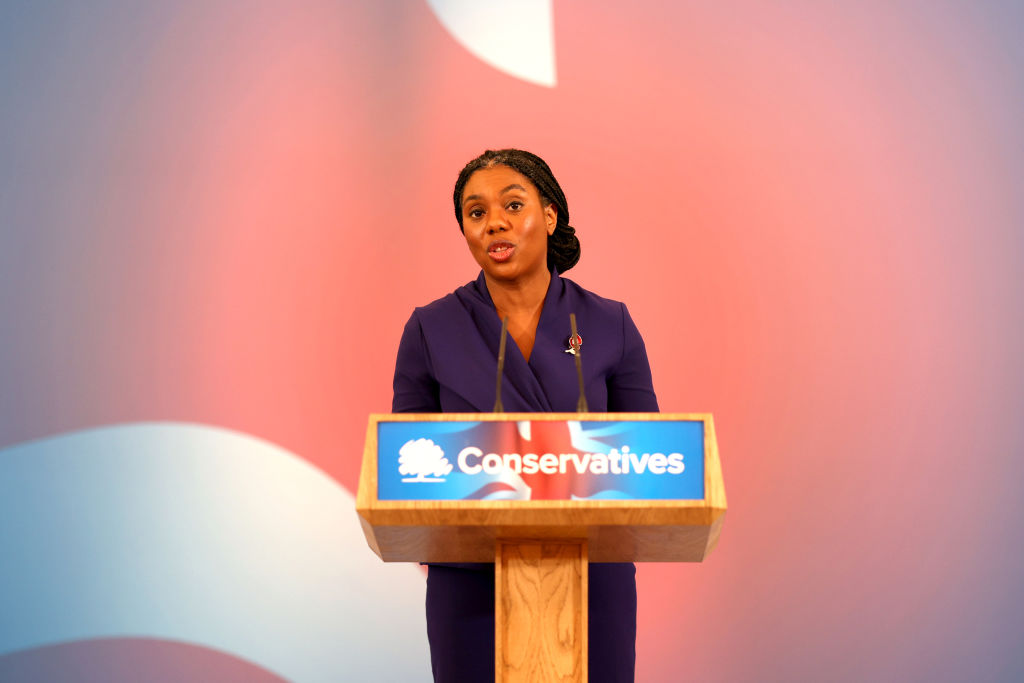“Mummy won!” Conservative Party members seem pleased with their new leader, and determined to both notice and to not notice the fact that she is not a white man. Kemi Badenoch, meanwhile, has positioned herself as the candidate of sensible, equal-opportunities modern British conservatism, with no time for woke nonsense or transgender posturing.
She has promised to change the Equality Act to make clear that transgender-identified men can be excluded from women’s spaces. And following her election as leader she made what sounded like a firm stand for a colour-blind British politics, telling the BBC’s Laura Kuenssberg that she looks forward to a time when “the colour of your skin is no more remarkable than the colour of your eyes or the colour of your hair”.
What is less clear, though, is whether Badenoch really is the leader who will transcend identity politics — or if that’s even possible. For her election both affirms the pluralism of post-Blair, mass-migration Britain and also the fact that, by virtue of that pluralism, identity politics is now inevitable whatever we — or Kemi — would prefer.
To her credit, in her tenure as Equalities Minister Badenoch pushed new and somewhat saner schools guidance on transgender identity over the line. As an opponent of “woke” race politics, meanwhile, her track record is more ambivalent: as James McSweeney points out, a 2022 paper she championed as Equalities Minister entrenches DEI across the health service, as well as endorsing race-based loans and snooping on “hate speech” in private messages.
Is Badenoch not being transparent about her political stance against race-based quotas and “critical race theory”? Does she just not read the documents she endorses? Perhaps there’s a third possibility: that identity politics is just an unavoidable by-product of high-speed diversification. Britain has gone from an estimated 97% white British in 1971 to around 75% according to the 2021 census. It is a dramatic change, and one that has produced competing political priorities and confused responses. And the bitterest online Right-wing debates around Badenoch’s campaign were waged on the uncomfortable territory that has resulted.
Badenoch was born in London, grew up in Nigeria, and returned to the UK as a young adult. Is she British, or a foreigner? Opinions on the Right diverge sharply. Some both emphasised her Britishness while also highlighting her migrant status: a kind of Schrödinger’s identitarianism. On the one hand she was born in Britain, and therefore her childhood in Nigeria doesn’t matter; on the other hand her upbringing was the subject of Guardian headlines and represented a positive change. Which is it? Both, really.
Badenoch’s story makes her a Rorschach inkblot for the Right. It exposes deep divisions over whether — or how far — British conservatives embrace the American-style model of national belonging which aims at colour-blindness yet often fails, or one that retains an ethnocultural component. The anti-immigration faction made no bones about it: if you grow up somewhere else, you’re not one of us. This faction is usually kept out of the mainstream press, but denounced her online as an outsider with no right to lead a British political party. Others challenged this as unacceptable racism.
In turn, Badenoch’s campaign has attempted to communicate a post-identity “values”-based conservatism. But this overt aspiration to post-identitarian politics may be wishful thinking. For the more enthusiastically a polity tries to transcend ethnic identity, the less it emphasises integration or migration restrictionism, and the more pluralistic it becomes — and thus, inevitably, the more distinct interest groups will emerge.
I can think of no multiracial society that does not also feature racial politics. And yet it continues to be an aspiration of the liberal Right that we might one day attain such a polity, in which identities are pluralistic and yet also somehow irrelevant. If this never quite happens in practice, that is not Kemi Badenoch’s fault. But anyone who imagines her vocal disavowal of identity politics will deliver a Tory Party unburdened by such concerns may find themselves disappointed.











Join the discussion
Join like minded readers that support our journalism by becoming a paid subscriber
To join the discussion in the comments, become a paid subscriber.
Join like minded readers that support our journalism, read unlimited articles and enjoy other subscriber-only benefits.
Subscribe